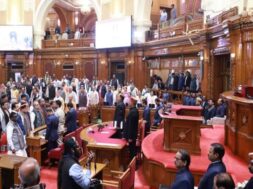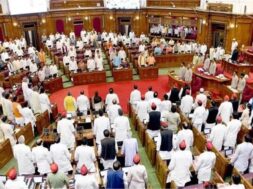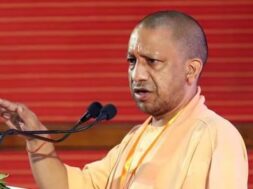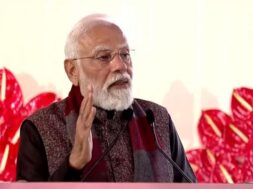
Virendra Pandit
New Delhi: His Democratic Party had called Moscow names from 2016 to 2020 and accused Donald Trump of hobnobbing with Vladimir Putin to get elected as US President. Now the new US President Joe Biden is packing bags in Washington to meet his Russian counterpart in a Summit in Geneva on June 16, amid fresh tensions.
Things were going rather well until, on May 23, an incident triggered tension. The forcible landing of a Ryanair flight at Minsk, Belarus, quickly became a flashpoint in the Moscow-Washington relations ahead of the June 16 meeting.
Ironically, the incident had nothing to do directly with either the US or Russia. It involved Belarus. A Lithuanian journalist, Raman Pratasevich, one of the founders of the Warsaw-based media groups, Nexta, was stopped from flying and his Ryanair flight was forced to land at Minsk in Belarus on May 23.
The reason, media reports said, was that Nexta had actively participated in protests and coverage of the events that erupted last year against Belarus President Alexander Lukashenko after his victory in elections. Many claimed the poll results were flawed. In November 2020, Belarus had placed Pratasevich on a ‘terrorist watch-list and charged him with three protest-related crimes, which could land him in jail for up to 15 years.
This forcible flight-diversion and landing came after President Lukashenko gave an “irrevocable command to turn the plane around and force it to land”. Belarusian officials even sent fighter planes to get the Lithuania-bound commercial plane landed in Minx to arrest the journalist.
Ever since America and the European Union members have pressed Belarus to justify the journalist’s detention. President Biden denounced the forced diversion of the commercial flight, and arrest of Pratasevich, as “a direct affront to international norms”.
Calling the incident “shameful assaults on both political dissent and the freedom of the press”, Biden condemned “in the strongest possible terms both the diversion of the plane and the subsequent removal and arrest of Mr. Pratasevich”.
“The United States joins countries around the world in calling for his release, as well as for the release of the hundreds of political prisoners who are being unjustly detained by the Lukashenka regime,” Biden stated.
But Russia supported Belarus.
Its Foreign Minister Sergey Lavrov said it was necessary to judge this incident based on all available information rather than in a rush. He pointed out that Belarus was ready to provide all the necessary materials to confirm that the aviation authorities acted in line with international rules.
And then he cited precedents that put America in the spot in similar cases. “The best-known episode took place in 2013, when Austria forced the Bolivian President’s aircraft to land at the US insistence, without any subsequent apologies,” he said.
In another case, Lavrov said, a Belarusian aircraft was forced to land in Kiev in 2016 because the Ukrainian Security Service was interested in an Armenian citizen who was on board. He was removed from the flight, and the plane continued its journey without any apologies.
Earlier, US Secretary of State Antony J. Blinken had condemned the Lukashenka regime’s ongoing “harassment” and arbitrary detention of journalists. “We stand with the Belarusian people in their aspirations for a free, democratic, and prosperous future and support their call for the regime to respect human rights and fundamental freedoms.”
It is in this backdrop that the Biden-Putin meeting will take place in Geneva on June 16.
White House Press Secretary Jen Psaki said the two leaders will discuss the full range of pressing issues, “as we seek to restore predictability and stability to the U.S.-Russia relationship”.
On May 24, Lavrov had said that the two leaders themselves will decide what issues to discuss at their meeting.
“President Vladimir Putin had pointed out on numerous occasions, that Russia was willing to discuss and coordinate solutions to any topics on the bilateral agenda, as well as to work together to settle global problems and regional conflicts and crises. The main thing is for our dialogue to be based on the principles of equality, mutual respect, and a balance of interests.”















